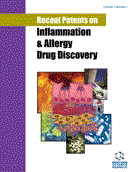Abstract
One of the important components in randomized Controlled Trial (RCT) is blinding. The gold standard of clinical trials is to achieve a double blind design. However, only a small number of randomized controlled trials in traditional Chinese medicine have been reported, most of them are of poor quality in methodology including placebo preparation and verification. The purpose of the article is to review the validity of placebo used in blinded clinical trials for Chinese herbal medicine (CHM) in recent years and related patents. We searched the Wanfang Database (total of 827 Chinese journals of medicine and/or pharmacy, from 1999 to 2005) and 598 full-length articles related to placebo clinical trials were found. 77 placebo blinded clinical trials for Chinese medicine were extracted by manual search from the 598 articles. After reviewing the 77 full-length articles, we found that nearly half of the clinical trials did not pay attention to the physical quality of the testing drug and placebo and whether they were of comparable physical quality. The rest provided very limited placebo information so that blinding assurance could not be assumed. Only 2 articles (2.6%) specifically validated the comparability between the testing drug and the placebo. Researchers in Chinese medicine commonly ignored the quality of the placebo in comparison to the test drug. This may be causing bias in the clinical trials. Quality specifications and evaluation of the placebo should deserve special attention to reduce bias in randomized controlled trials in TCM study.
Keywords: Chinese herbal medicine (CHM), clinical trial, placebo
 12
12


















